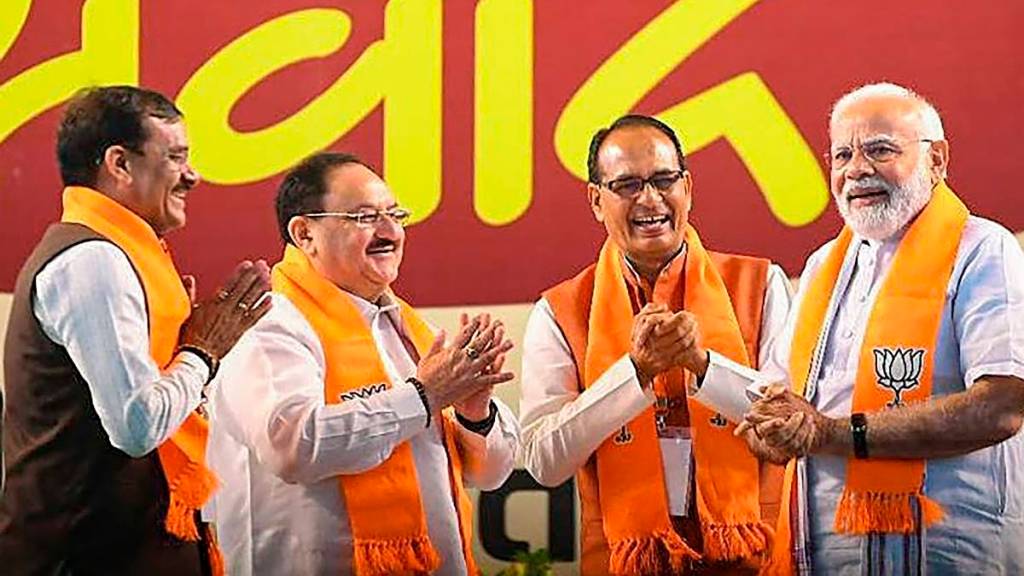Prime Minister Narendra Modi set the cat among pigeons by endorsing the implementation of a Uniform Civil Code in the country at a rally in Bhopal on June 27.
“Will a family function if there are two different sets of rules for people? Then how will a country run? Our Constitution too guarantees equal rights to all people,” the Prime Minister said, charging the Opposition of indulging in vote-bank politics and “instigating Muslims”.
Also Read: A just Code: Battle lines over Uniform Civil Code are getting drawn yet again
Arvind Kejriwal’s Aam Aadmi Party, for instance, said it supports the UCC “in principle”, but called for wider consultation. “We support UCC in principle. Article 44 also says there should be UCC in the country. But…there should be wider consultation with all religious leaders, political parties, and organisations, and a consensus should be built. Some decisions cannot be reversed, some matters are fundamental to the nation. Authoritarian decisions cannot be taken,” AAP national general secretary Sandeep Pathak said.
As if by design, the PM’s remarks, days after the Law Commission sought feedback from the public on the UCC, triggered an immediate outburst. Most Opposition parties were quick to dismiss it as a polarisation tactic by the BJP ahead of the Lok Sabha elections in 2024.
There were also some outliers, and among them, the most vociferous of Modi’s critics.
Sharad Pawar’s NCP said it was neither in support nor against the UCC. “At present, we neither support nor oppose UCC. There is a need for a discussion with society and stakeholders,” said NCP National Secretary Naseem Siddiqui, adding that the party will send a note to the Law Commission on Uniform Civil Code. “There are many clauses in UCC that ensure equal rights and justice for women,” he said, pointing out that many countries have one law for civilians.
Also Read: PM Modi’s push for Uniform Civil Code makes Opposition see red
The Shiv Sena (UBT) also maintained a neutral stand and limited its opposition to the government’s intent and not the UCC, per se. “Only opposing the Sharia law of Muslims is not the basis for Uniform Civil Code. Having equality in law and justice is also Uniform Civil Code,” an editorial in the party’s mouthpiece Saamna said. Uddhav Thackeray had earlier warned that “those bringing the law” should understand that the UCC will not only impact Muslims but Hindus too.
The stand adopted by the AAP, NCP and the Sena (UBT) is contrary to how a majority of the Opposition parties reacted to the Prime Minister’s push for UCC.
Congress, Trinamool Congress, JD(U), RJD, AIMIM, Muslim League, Samajwadi Party and the DMK have come down heavily on PM Modi and unequivocally opposed the need for a UCC in the country. While some have claimed it is an attack on India’s plurality, others pointed out the complexities a law such as this would entail.
The BJP, however, would be wise not to measure its success in getting these parties on board to get the UCC passed in Parliament. Its numbers in the Rajya Sabha may not prove enough, with the support of fence-sitters like the YSRCP unlikely on the issue. Even otherwise, there have been murmurs that the BJP may only be testing the waters.
The BJP’s victory, for now, would lie in shattering the optics of a “united” opposition that leaders of 15-odd parties put on display in Patna last week. That the same Opposition that vowed to put up a united fight to dislodge Modi from power is divided on an issue so closely identified with the BJP, is a battle half-won for Modi.
With contentious issues like PM face, seat-sharing, and ticket distribution left unresolved, he would trust the ‘united’ Opposition to do the rest on their own.


